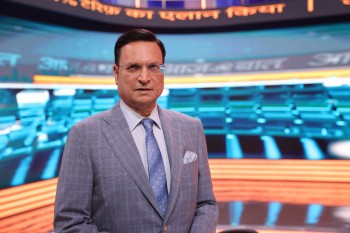 There was uproar by the opposition in both Patna and Delhi over Election Commission’s Special Intensive Revision (SIR) in Bihar. In the state assembly, RJD leader Tejashwi Yadav claimed, not a single Bangladeshi or Rohingya has been found as a voter in the electoral list. He asked why Election Commission is silent on this issue. Tejashwi Yadav questioned why names of 51 lakh voters are being removed. He described withdrawal of voting rights as “murder of democracy”.
There was uproar by the opposition in both Patna and Delhi over Election Commission’s Special Intensive Revision (SIR) in Bihar. In the state assembly, RJD leader Tejashwi Yadav claimed, not a single Bangladeshi or Rohingya has been found as a voter in the electoral list. He asked why Election Commission is silent on this issue. Tejashwi Yadav questioned why names of 51 lakh voters are being removed. He described withdrawal of voting rights as “murder of democracy”.
In Parliament, most of the opposition parties created uproar and stalled proceedings in both Houses over the SIR issue. They carried placards opposing the EC’s move, but Speaker Om Birla did not allow a discussion on this issue. There are clear indications that the government is unwilling to allow a debate on this matter, because EC is a constitutional body which has the right to revise electoral lists.
Congress leader Rahul Gandhi claimed, he had concrete evidence of large-scale changes made in the voters’ lists in Karnataka and Maharashtra. He promised to make this public soon. Supreme Court is going to hear the SIR issue on July 28.
While the opposition is levelling charges against the EC on SIR issue, the Commission is carrying on with its work. Data released by Election Commission shows that the special intensive revision is almost complete. More than 98 per cent voters have submitted their enumeration forms. Nearly 20 lakh voters have died since the last revision took place. Nearly 28 lakh voters are not reachable at their known addresses. They might have shifted their residence elsewhere. Nearly seven lakh voters were found to have vote in more than one places. Nearly one lakh voters are untraceable.
Election Commission says, the draft electoral list will be ready by August 1, and one month’s time will be given to voters and political parties to file objections till September 1. Their objections will be taken up by the EC. Political parties can cross check the electoral lists by going to the ground level. After disposing all objections within a month, the final electoral list will be issued.
I think the opposition should wait for the EC’s draft electoral list and Supreme Court’s judgement instead of levelling baseless charges against the Election Commission.
Why Justice Yashwant Varma’s case will drag on
Supreme Court has decided to set up a bench to hear Justice Yashwant Varma’s petition challenging the report of the inquiry committee of judges set up by the apex court in the cash recovery case.
In the petition, the judge has sought to cancel the recommendation of the then Chief Justice Sanjiv Khanna calling for his impeachment. Justice Yashwant Varma has fielded top lawyers like Kapil Sibal, Mukul Rohatgi, Siddharth Luthra and Siddharth Agrawal in his defence.
In the Supreme Court, Kapil Sibal mentioned the judge’s petition and said some constitutional issues have been raised and there should be an urgent hearing. Chief Justice B R Gavai agreed to set up a special bench, but recused himself from the bench since he was part of the inquiry process as a member of the SC Collegium.
The three-judge inquiry committee, headed by Chief Justice of Punjab & Haryana High Court Sheel Nagu, had recorded the statements of 55 witnesses and had visited the judge’s bungalow where the cash was recovered in stacks.
On the basis of the inquiry committee report, the then CJI Sanjiv Khanna had written letters to President and Prime Minister on May 8 recommending impeachment of the judge. In his petition, Justice Varma has said that he was not given full opportunity to express his viewpoint.
Justice Varma’s case is not only being delayed but it becoming curiouser. It is a fact that currency notes were found from his official residence, there is a video of the notes, police had seen the bundles of cash, but neither police can question the change, nor can it file an FIR. Police cannot prepare a panchnama (statement of five persons).
The law forbids the police in doing so. The powers of Chief Justice of India are also limited. The CJI can transfer the judge, which he did. He can order an inquiry, which he did by setting up a committee of three senior judges who found Justice Varma guilty. The CJI can ask Justice Varma to resign, but the latter declined to do so.
The only option left for the CJI was to recommend to the government to initiate impeachment proceedings, which is long and time consuming. Before impeachment process could begin in Parliament, Justice Varma challenged the CJI’s decision in the Supreme Court. Top lawyers will appear for him. The matter can drag on.
The impeachment may take time. Unless the final decision comes, Justice Yashwant Varma will continue to be the judge of the High Court.